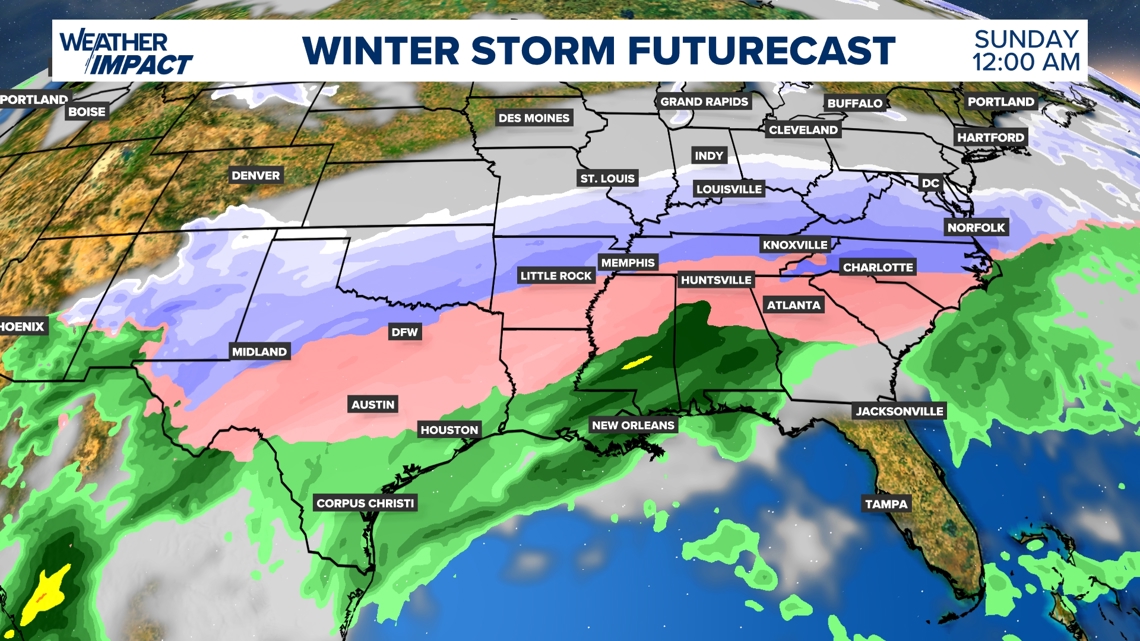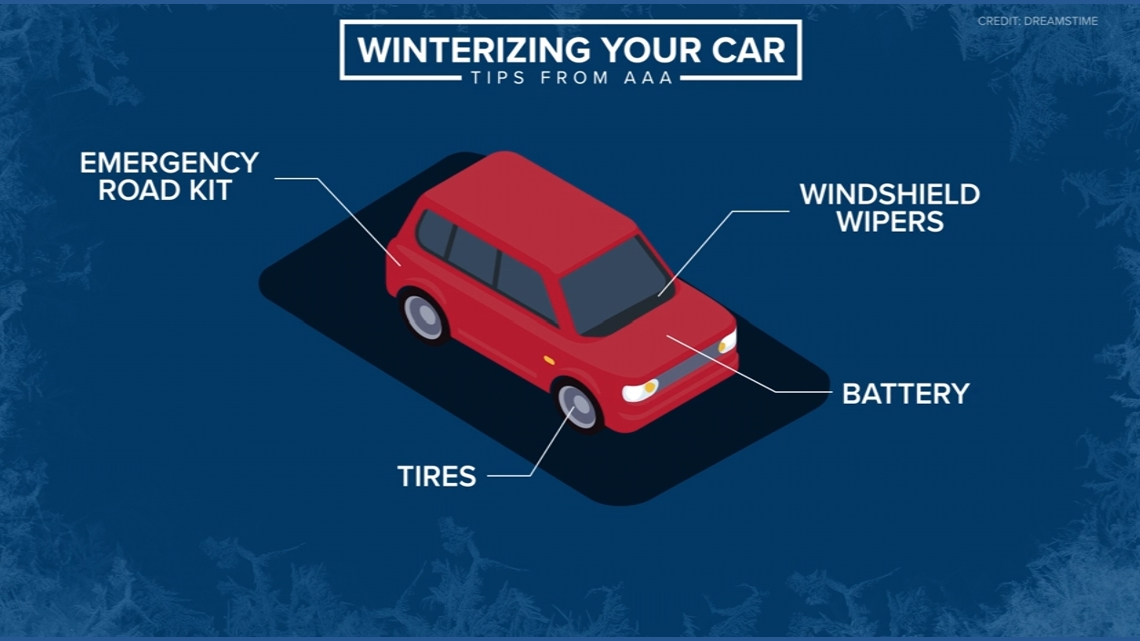Share this @internewscast.com
An impending ice storm is set to sweep across the Southern United States this weekend, prompting residents to take necessary precautions to safeguard their vehicles and homes.
SAN ANTONIO — With icy conditions on the horizon, preparing in advance is essential to minimize risks and protect your property. Ice storms often bring freezing rain that can severely affect roads, trees, and power lines, heightening the potential for hazardous travel and power outages.
The most significant impact from this wintry weather is expected between Friday and Sunday, particularly from Saturday night into Sunday morning. During this period, temperatures throughout the region are forecasted to plummet below freezing, causing any existing moisture to turn into ice instantly.


Staying updated with local weather forecasts is crucial, as winter weather predictions can shift daily with new computer model insights. Keeping an eye on potential local impacts and timing will help you better prepare for the storm’s arrival.
Ensure your electronic devices are fully charged and stock up on essential supplies, including food, water, medications, flashlights, and batteries. Having a basic emergency plan in place can significantly ease the stress of such situations.
Your vehicle also needs special attention in anticipation of icy conditions. It’s important to check your tire tread and pressure, top off antifreeze and windshield washer fluid, and verify that your battery is in good working order.


Place an emergency kit in your car that includes blankets, an ice scraper, flashlight, jumper cables, and traction aids like sand or kitty litter. If freezing rain is occurring, avoid driving whenever possible, as even short trips can become dangerous on ice-covered roads.
Preparing your home is equally important before an ice storm hits. Bring outdoor items inside, secure loose objects, and trim weak tree branches that could break under the weight of ice. Insulate exposed pipes to prevent freezing, and set faucets to drip slightly during extreme cold. Stock extra blankets and warm clothing, and have a safe backup heating option if power is lost. Taking these steps in advance can help protect your home and keep your family safe until conditions improve.
Click here for your local forecast from your trusted weather team!
MORE WEATHER RESOURCES:
The must-have items your car needs if you’re driving in winter
What is frostbite? Here’s how to spot the signs early
How is a blizzard different from a winter storm?
Why you should water your plants before it freezes
Why warming up your car on cold mornings might actually be hurting it
















